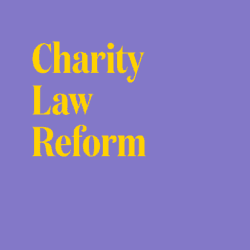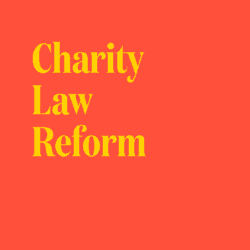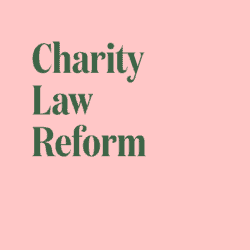This is the second in a series of articles focused on various aspects of charity law that have been a burden on the Canadian charitable and non-profit sector for 70 years. The articles are written by members of the Canadian Bar Association’s Charities and Not-for-Profit Law Section, who deal with these issues on behalf of their clients on a regular basis. In this piece, Terrance S. Carter looks at charitable purpose trusts.
The legal issue that exists
The law regarding charitable purpose trusts in Canada needs to be updated.
A charitable purpose trust is an exclusive dedication of property of a charity for a particular charitable purpose (referred to as a “restricted purpose”). These trusts may have further restrictions regarding how funds can be used (a “use restriction”) and/or the length of time that the gift is to be held (a “time restriction”). An example of a charitable purpose trust would be a gift of money to an educational charity on the direction that the money be held and invested for a period of 20 years, with the income from the investments to be used to support a named scholarship of the charity. The charity in question would be considered to be holding the gift as a charitable purpose trust subject to both a time and a use restriction.
At law, there are many obligations and associated benefits with charitable purpose trusts. The main legal obligation includes how the trustees (i.e., those responsible for the trust) of charitable purpose trusts have duties to make sure that funds are applied toward the intended restricted purpose and are not misapplied. If the funds were used for some purpose other than the restricted purpose, there could be allegations against the trustees of breach of fiduciary duty and even breach of trust. Some of the legal benefits of charitable purpose trusts include how – unlike most other types of trusts – charitable purpose trusts do not need to have a specific beneficiary and they are allowed to exist in perpetuity without the tax consequences that would normally apply. Charitable purpose trusts are regulated by both legislation (e.g. provincial trustee acts) and the common law of trusts established over the years by cases decided by the courts.
There are several reasons that the law regarding charitable purpose trusts needs to be updated.
First, provinces may have completely different rules with regard to what some of the fundamental characteristics of charitable purpose trusts are and the implications of a corporation acting as a trustee of these trusts. For example, an influential case from the Ontario Court of Appeal decided in 2000, Re Christian Brothers of Ireland in Canada, adopted a rationale that a charitable purpose trust held by a charitable corporation may be subject to claims by creditors, even if this means that the trust’s assets cannot be used according to its restricted purposes. However, in British Columbia that decision has to be read subject to the Charitable Purposes Preservation Act, which in general terms and subject to statutory requirements protects chartable purpose trusts of a charitable corporation from being seized by creditors of the charity. This is a good example of how differences in the common law and provincial legislation involving charitable purpose trusts can result in different outcomes depending upon the facts as well as the location of the charitable purpose trust.
There is a distinct need for reform of the law in the area of charitable purpose trusts, because the common law … has not been able to evolve at the pace of charitable giving today.
Second, many in the charitable sector – even professional advisors – can become confused at times about the differences between charitable purpose trusts and the other means by which people may give gifts. In addition to gifts that are subject to restricted charitable purpose trusts, donors may also give gifts that are unrestricted, are made subject to conditions, or are only non-binding requests. Alternatively, a charity may give another charity an inter-charity gift in the form of a grant that is subject to contractual requirements and restrictions. As such, the law is not always clear when charitable purpose trusts will apply and when they won’t depending upon the nature of the gift.
Finally, confusing and unclear rules about charitable purpose trusts only compound the problems for charities when other complex law applies. For example, endowments are a type of charitable purpose trust: they are long-term gifts where a donor has directed that the gift (generally referred to as “capital”) be held for a stated number of years (or in perpetuity). A charity that holds endowments has to meet certain tax requirements under the Income Tax Act, including the disbursement quota. The disbursement quota is a rule that a minimum amount (currently 3.5% of the average value of the charity’s assets not used directly in its charitable activities or administration over a period of 24 months) is spent each year on charitable activities or gifts to qualified donees (this includes gifts to other charities). If a charity does not have enough unrestricted funds available to meet the disbursement quota, it may need to consider spending a portion of the original capital of an endowment or the realized capital gains from that endowment. However, the terms of the charitable purpose trust that created that endowment may not permit the original capital or realized capital gains to be spent. In this circumstance, the charity may be forced to seek court authorization to allow it to spend some of the capital or capital gains; otherwise, the board of the charity could be left vulnerable to allegations of breach of trust. As such, it is important that the law of charitable trusts is carefully considered when such law intersects with other laws, such as the Income Tax Act, in order to determine how a charity can comply with overlapping legal obligations.
Types of organizations impacted by the problem and how they work around it
All charities, both large and small, that receive restricted gifts in some form can be impacted by the confusing law of charitable purpose trusts. In addition, donors, senior managers, officers, directors, and professional advisors have a vested interest in seeing that the requirements for charitable purpose trusts are properly described and complied with.
Charities may consult professional advisors to obtain advice about how to comply with the legal requirements of charitable purpose trusts, but even in those scenarios some uncertainty may still be unavoidable.
Potential regulatory solutions being proposed
There is a distinct need for reform of the law in the area of charitable purpose trusts, because the common law, consisting of cases decided by the courts, has not been able to evolve at the pace of charitable giving today. Charities are burdened with outdated legal concepts as they try to achieve their missions.
The regulatory solution that is proposed is that there should be an overhaul and clarification of the law of charitable purpose trusts through a restatement of the law by provincial legislatures undertaken in collaboration with the federal government with regard to the federal government’s jurisdiction over the Income Tax Act. The scope of the law with regard to charitable purpose trusts would have application to all charities, regardless of whether they are organized as not-for-profit corporations, trusts, partnerships, or in some other manner. To overcome the current confusion, uniform legislation should be developed and adopted by all provinces and territories across Canada.
The benefits of solving this issue for the sector
If the law of charitable purpose trusts was clearly restated and uniformly adopted across Canada, there would be greater certainty in the charitable sector with regard to donations. Greater certainty, in turn, would facilitate the drafting of gift agreements no matter where someone was located in Canada, making the process of making gifts to charities more effective and efficient. It would also result in a better understanding of the consequences of misdescribing or failing to comply with restrictions set out in charitable purpose trusts and better equip charities to avoid potential negative consequences. Finally, if the law of charitable purpose trusts were updated, charitable corporations would have a better idea of how the law applies to them and how to act accordingly.
***
The author would like to thank Lynne Westerhof, B.A., J.D., student-at-law, for her assistance in preparing this article.


